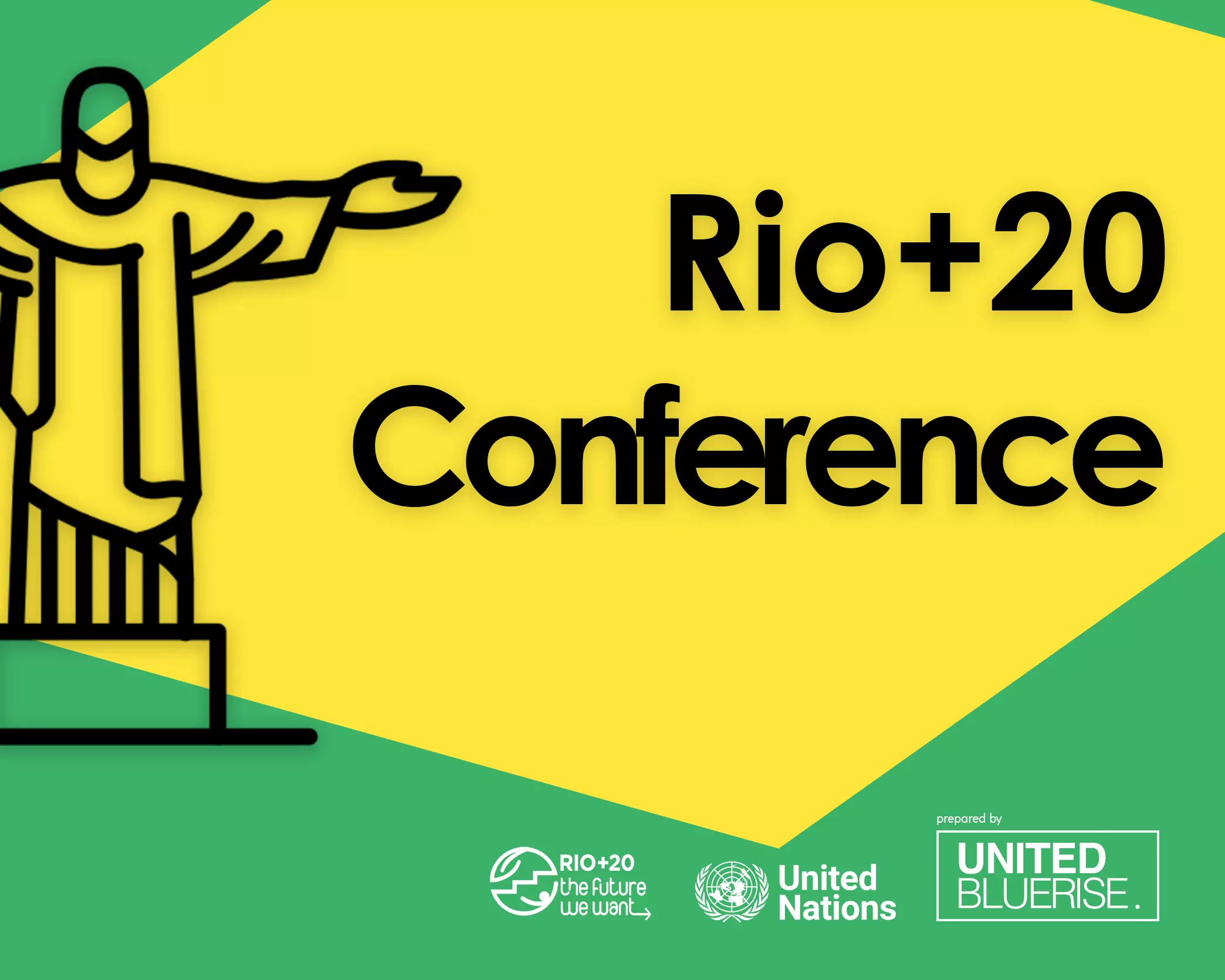RIO 20 – United Nations Sustainable Development

Rio 20 or Rio+20 – the short name for the United Nations Conference on Sustainable Development held in Rio de Janeiro, Brazil, in June 2012 – was an historic opportunity to define pathways to a safer, more equitable, cleaner, greener and more prosperous world for all.
Twenty years after the 1992 Rio Earth Summit, when countries adopted Agenda 21, a blueprint to reconsider economic growth, advance social equity, and ensure environmental protection, the UN convened governments, international institutions, and major groups to agree on an array of smart measures that could decrease poverty while encouraging decent jobs, clean energy, and more sustainable and equitable resource use.
Rio+20 provided an opportunity to move beyond business as usual and take action to eradicate poverty, solve environmental degradation, and establish a bridge to a better tomorrow.
Thousands of individuals from governments, the commercial sector, non-governmental organizations (NGOs), and other stakeholders convened in Rio de Janeiro at the end of May and the start of June 2012 to make a strong push toward sustainable development.
In June 2012, the committee that was preparing for the Conference met there, as did the main conference.
Parallel to and between the scheduled events, a variety of partners held many side events, exhibitions, demonstrations, fairs, and announcements.
Based on the many examples of success seen over the last 20 years, governments were expected to establish clear and focused practical strategies for implementing sustainable development.
Theme of Rio+20:
The official discussions focused on two main themes:
- How to build a green economy to achieve sustainable development and lift people out of poverty, including support for developing countries that will allow them to find a green path for development
- How to improve international coordination for sustainable development.
Seven Priority Areas:
The United Nations selected seven key areas for sustainable development at the Rio+20 meeting. These priority regions were as follows:
- Jobs: The conference recognized that creating sustainable jobs is essential for achieving sustainable development. This includes promoting green jobs and investing in education and training programs to develop the skills needed for the transition to a sustainable economy.
- Energy: The conference called for a shift to more sustainable energy sources, such as renewables, and the development of more efficient energy systems to reduce carbon emissions and mitigate climate change.
- Cities: With the majority of the world’s population now living in cities, sustainable urban development was identified as a key priority. The conference focused on developing more sustainable urban planning and management practices to improve the quality of life for city residents.
- Food: The conference recognized that sustainable agriculture and food systems are essential for achieving sustainable development. This includes promoting more sustainable farming practices, reducing food waste, and increasing access to nutritious food.
- Water: The conference emphasized the importance of sustainable water management and the need to address water scarcity and pollution. This includes improving water efficiency, investing in water infrastructure, and promoting sustainable water use practices.
- Oceans: The conference recognized the critical role of oceans in sustainable development and called for more sustainable management of marine resources. This includes protecting marine ecosystems, reducing marine pollution, and promoting sustainable fishing practices.
- Disaster Risk Reduction: The conference emphasized the importance of disaster risk reduction and the need to build resilience to natural and human-made disasters. This includes promoting early warning systems, improving disaster preparedness, and investing in disaster risk reduction measures.
What is Sustainable Development:
Sustainable development addresses the requirements of the present with no jeopardizing future generations’ ability to meet their own demands. Sustainable development, viewed as the foundational value for long-term global growth, is comprised of three pillars: economic growth, social development, and environmental protection.
The endorsement of a declaration titled “The Future We Want,” which highlighted a wide variety of sustainable development goals and urged for the creation of a set of Sustainable Development Goals, or SDGs, to guide global development efforts beyond 2015, was one of the conference’s primary outcomes.
“The Future We Want” acknowledged that only a mix of growth in the economy, social development, and safeguards for the environment can lead to long-term progress. It urged the inclusion of these three pillars of sustainable development in policymaking at all levels, including local, regional, and international.
How UNITED BLUERISE can help
As a global movement, we also strongly invite individuals and groups by choosing to reuse and saving millions of pieces of plastic from ending in nature, which is surely the principal to reduce plastic pollution and of course the climate change. In this pathway, we can together keep our environment and community a plastic-free for the future.
The goal for all of us is to stand up for an ideal and unite towards a better world by sharing facts, ideas and advice on how to live a more responsible life. Our consuming culture is polluting our planet. We need prompt lifestyle changes when it comes to single-use plastic. Our goal is ultimately to reduce plastic waste. Plastic is not only polluting our planet and impacting communities around us, but it’s also making its way into our bodies through the air we breathe, food we eat, and water we drink.
Article: QL-7128
Source: sustainabledevelopment.un.org